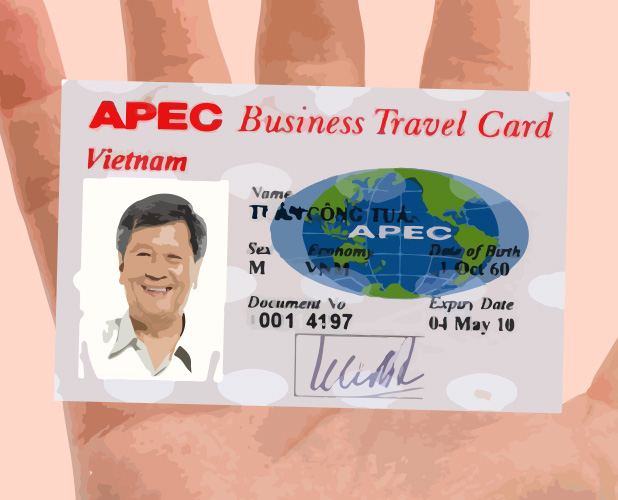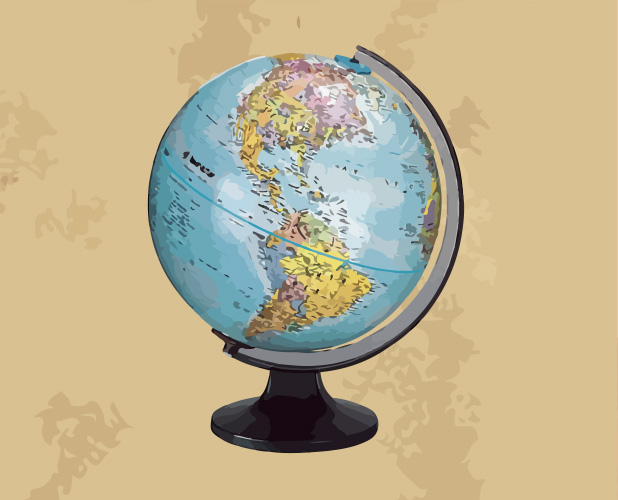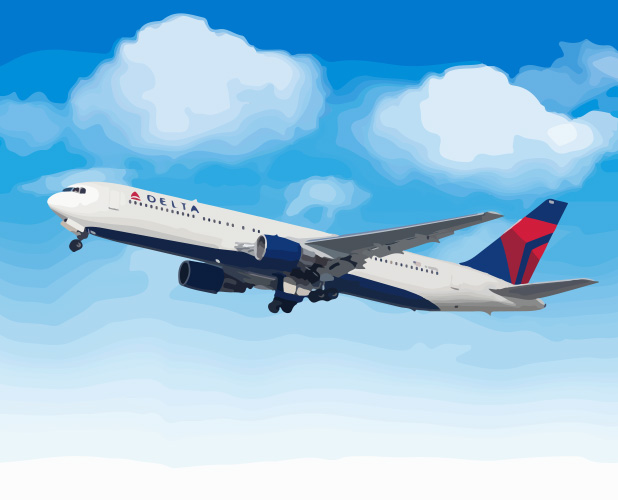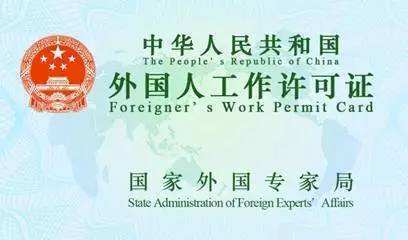
What It Is
Asia Pacific Economic Co-operation (APEC). It’s already given us flip flops, KFC egg tarts and the Mighty Morphin’ Power Rangers. These days, if you hold a passport from one of 21 APEC countries, you can also apply for an implausible piece of plastic that lets you cut airport immigration queues in all of them, including the twin epicenters of despair: Pudong and Hongqiao. You’ll also be able to get into 19 of the participating countries visa-free (including China) for at least 59 days, any time, as often as you want.
Boom.
But yeah, you have to be a passport-holder of one of the following countries. Sorry, Euros: Australian, Brunei, Canada, Indonesia, Japan, Republic of Korea, Malaysia, New Zealand, The Philippines, Singapore, Thailand, U.S. of A., Chinese Taipei (cough), Hong Kong, China, Mexico, Papua New Guinea, Chile, Peru, Russia, and Vietnam.
That you? Welcome, welcome. Read on.
Just think of the applications. You’re running late for your flight, and you get to fly through immigration in a queue that’s otherwise reserved for people who deserve it way more than you do: families with young kids and the disabled.
Or maybe you do what I did in 2011 and forget, like an asshole Phileas Fogg, that you’ll lose a day changing time zones and your China work visa will expire mid-flight. With an APEC card it wouldn’t matter. You’d have an extra 60 days to get things sorted.
Most participating countries have been members of the APEC scheme since 2002 at the latest, but a lot of people still don’t know about the cards or haven’t got around to applying for them. In February 2014, there were only about 500,000 cards in active use. Sure, that helps keep the special airport queues short, but hey. The more decent, honest people who can get across archaic international borders, diminish the power of dopey patrio-tribalism, and transcend the cruel lottery of nationality by birth -- whether they’re pursuing business opportunities or just being curious, communal and engaged global citizens -- the better.

Who Can Apply?
The APEC Business Travel Card is available to people from almost every populous country with beachfront property on the Pacific ocean.
There is one important caveat here. The United States and Canada are kinda dicks about their membership. Thanks 'Merica. Canada, what gives? Citizens of these "transitional" countries can use the expedited APEC queues at airport immigration but can’t use their cards to get into the other countries visa free, and the same goes in reverse. APEC card holders from other countries can cut queues in US and Canadian airports but can’t use them to get in visa free. So if you're American or Canadian, you get the quicker lines but still need the visas. Everyone going to America or Canada, you still need the visas.
Another wrinkle is that the cards are supposed to be limited to business travelers who frequently ‘conduct trade and investment activities in the APEC region’, something defined differently in different countries. As a New Zealander, I just had to send off a couple of business cards and a letter from my employer saying I traveled for work. My trade and investment activities include investing in blocks of New Zealand cheese and trading them with friends and colleagues to erode some of the natural calcification of resentment and hostility that naturally builds up among human beings. I'm doing the Lord's good work.
Australia, on the other hand, is somewhat stricter. There you need to work for a company on the Forbes 2000 list, be a finalist in the Australian Export Awards, or meet one of several other criteria provide. I interviewed Kylie Minogue once, and I feel like that should be enough to earn me an Ozzie APEC card. That said, America does not consider entertainers, professional athletes, or news correspondents to be "verified business persons" when it comes to APEC card applications. Like visa applications, APEC card application success is essentially decided by witch doctors who spit blood into fires and read the smokey emissions, before going back to deciding whether they like the look of you or not.
Because countries are incapable of forgiveness, you’re not eligible for an APEC card if you’ve been convicted of a criminal offense.

How Much Does It Cost?
Fees vary by country. Here are a few examples: Australia, 200 AUS; Hong Kong, 490 HKD; New Zealand, 150 NZD; US, 170 USD, including membership in a CBP Trusted Traveler Program; and Canada, 75 CAD.
That fee gets you a card that lasts for five years, and even if you don’t regularly use it to get into China, if you go on vacation once in a while you can quickly make the money back. Visas for Indonesia cost 25 USD for 30 days, and for Vietnam and Russia it’s about 45 USD, with prices only going up for multiple-entries and longer stays. For a Chinese person visiting New Zealand, a tourist visa costs about 110USD.
Even more valuable: all the hours you’ll spend somewhere other than the holding pens administered by immigration officials.
***
If you think you might be eligible, it really is worth having. Information about how to apply in each country is available on the APEC website.
This is a place for show life about china, If these articles help you life better in china, Welcome to share this website to your friends, Or you can post questions about china life in FAQ, We will help you to find the right answer.

![[How to]: Get An APEC Card and Travel Visa-Free](https://www.life-china.cn/wp-content/uploads/2019/07/1456802910.jpg)
![[How To]: Skip The Queue At Immigration and Use E-Channel](https://www.life-china.cn/wp-content/uploads/2019/07/1549870179-440x264.jpg)

![[How To]: Play the Lottery in Shanghai](https://www.life-china.cn/wp-content/uploads/2019/07/1530532366-440x264.jpg)
![[How To]: Register When You Return to Shanghai](https://www.life-china.cn/wp-content/uploads/2022/09/a8e2-5a54-4e52-8dc4-29bdd71ef0f8-1.jpg.680.0-1-440x264.jpg)
Recent Comments